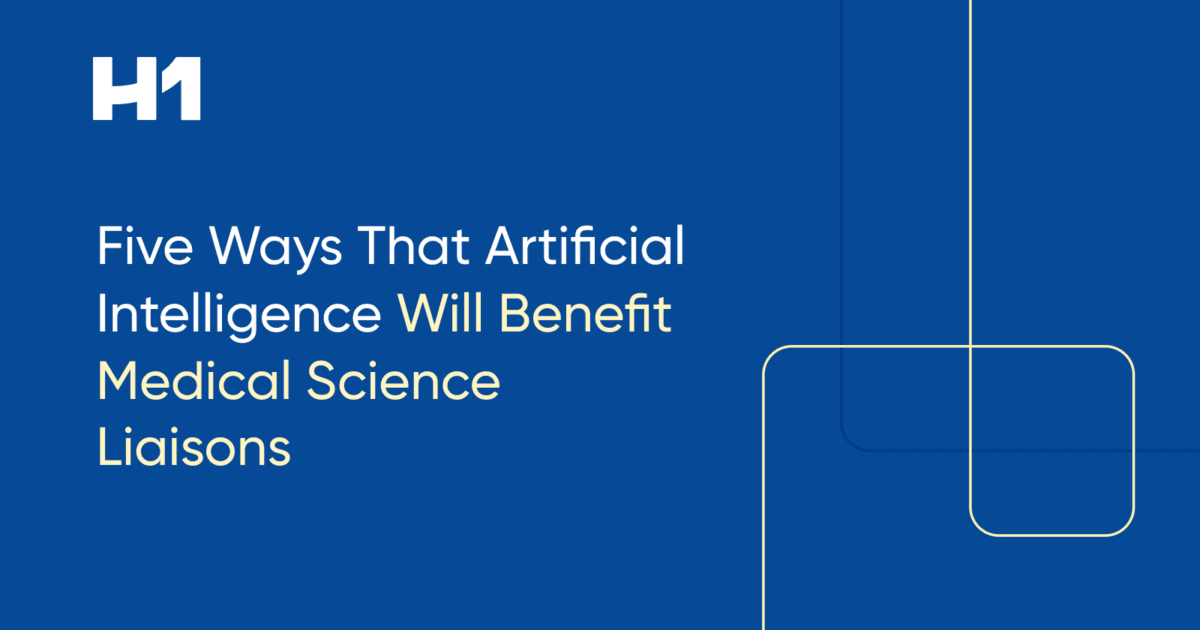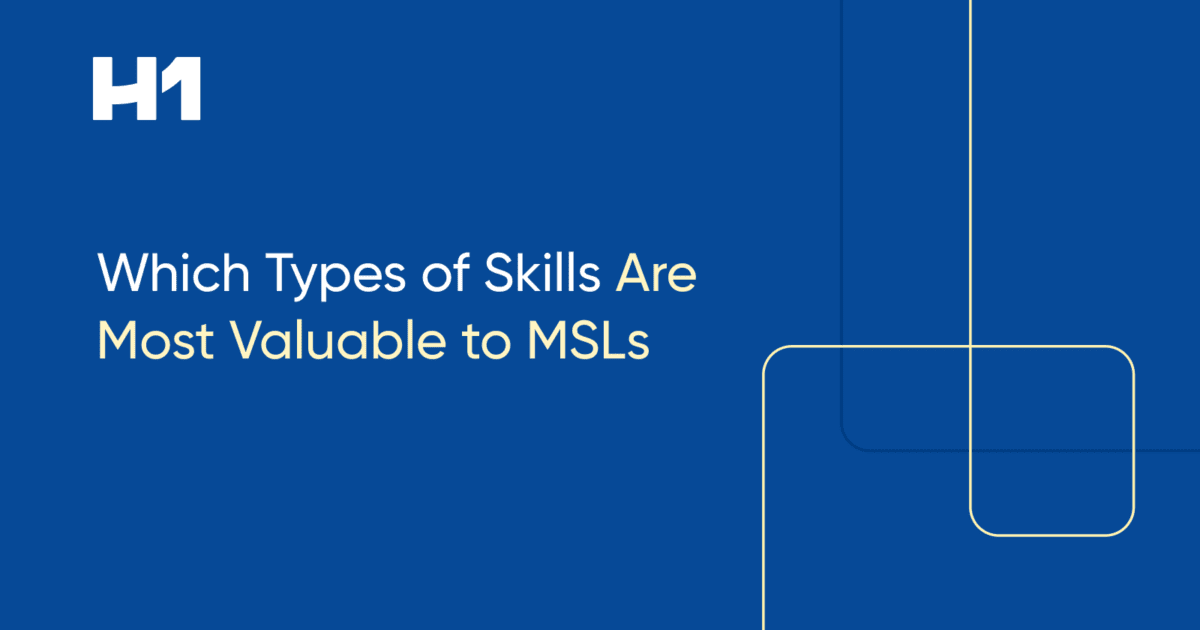5 Ways Artificial Intelligence Will Benefit Medical Science Liaisons

By now, pretty much everybody agrees that artificial intelligence (AI) will change all of our lives forever. From transportation to quality control, from education to medicine, from entertainment to manufacturing, few if any area of our professional and personal lives will remain unaltered.
It does not come as a big surprise then, that AI will also have a profound impact on the work of Medical Science Liaisons (MSLs).
Here are five ways that artificial intelligence will help medical science liaisons with their many tasks and responsibilities:
Machine learning (ML) tools can help make sense of vast amounts of data.
Tasks like identifying and selecting the best key opinion leaders is something supervised machine learning algorithms excel at. These algorithms use labeled examples and apply what they learn from those to predict future events. Trained on what to look for, ML algorithms can crunch through huge databases of possible KOLs and identify top candidates that a medical affairs team can then further evaluate. The advantage of this approach is that one starts with the whole universe of possible KOLs rather than an already biased short list based on personal knowledge and relationships.
Similarly, ML algorithms can support recruiting patients for clinical trials – a task MSLs are often involved in.
By integrating and analyzing clinical data, real world data, genetic data, etc. machine learning can support identifying patients most likely to benefit from participation in the trial and least like to suffer adverse effects. And it’s not just data analysis, artificial intelligence will also facilitate the gathering of data, e.g. real time data from wearable devices or by capturing oral notes from doctors.
On a very practical note: self-driving cars will have an enormous impact on society as a whole.
Experts expect that driverless cars will reduce the number of accidents dramatically, decrease traffic congestion and increased fuel efficiency. For MSLs – and many other professionals who spend a lot of their time on the road – one of the major upsides will be the time they gain for doing productive work while the car drives them to their next appointment. An MSL can spend that hour before the meeting with an important KOL preparing rather than driving and will arrive relaxed instead of stressed out.
Chat bots to convey medical information sounds somewhat far-fetched at the moment.
Who doesn’t hate those voice prompted loops we all end up in when calling our phone provider or healthcare insurance. But automated voice systems are to intelligent chat bots what Pacman is to Fortnite: not even close. Intelligent chat bots mimic human conversation using AI and can answer questions that the MSL would otherwise take the time to reply to. Since one of the major responsibilities of MSLs is to build and maintain good working relationships with “their” KOLs it is hard to see how MSLs would hand off all or even most of the direct interaction with a KOL to an algorithm. But answering routine requests or urgent requests when the MSL is unavailable is a sensible application.
Last but not least, AI based learning platforms will personalize learning depending on each individuals’ learning style.
These tools can be utilized to provide the most effective training for each MSL and can be utilized by MSLs to present data to KOLs in a way that is custom-tailored to the style of each expert.
We are at the very beginning of the AI revolution and the impact of this new technology is still hard to grasp. For many professionals, including MSLs, artificial intelligence will make life easier in many respects starting with the daily nuisances like driving, to challenging tasks like combing through scientific literature to answer a KOL’s question.
